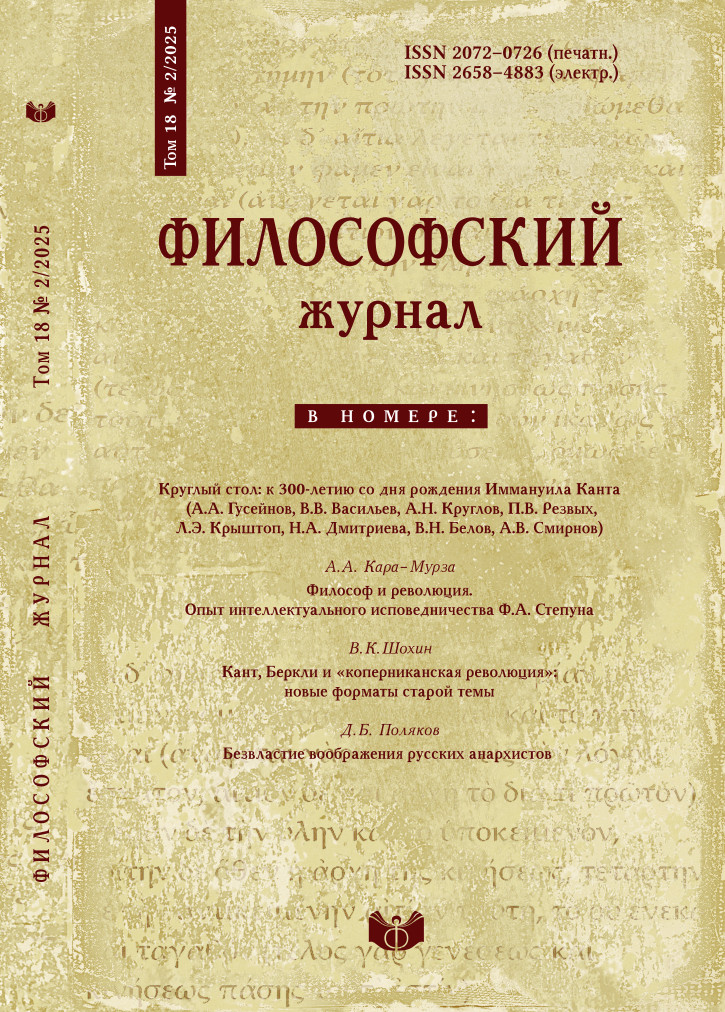Kant and contemporary Kant studies: achievements and prospects
DOI:
https://doi.org/10.21146/2072-0726-2025-18-2-42-52Keywords:
Kant, Kant studies, ethics, Copernican turn, lecture notes, natural right, philosophy of lawAbstract
The article concerns two issues – the significance of Kantian philosophy today and the prospects for the development of Russian Kantian studies. The first part of the article summarizes some aspects of the significance of Kantian philosophy in and for the contemporary world. To such aspects the author of the article refers the Copernican turn and Kantian ethical apriorism. The Copernican Turn had a significant influence on the subsequent development of the theory of knowledge. It also had a significant impact on other areas of philosophical knowledge such as philosophy of religion and philosophical theology. As an example the article considers the transcendental theology of K. Rahner, which emerged under the influence of Kantian philosophy and formed the basis of the concept of “anonymous Christian”. Kantian ethics states the position that there is a universal, human-independent moral norm, which human beings should follow with unconditional necessity. This position opposes the development of various forms of consequentialism and is particularly important in contemporary debates on the problems of applied ethics. The second part of the article presents a brief overview of the achievements of Russian Kantian studies in the field of translations of Kantian works. All of Kant’s printed works have been translated into Russian. Some of them are available in some different translations. At the same time, the author of the article draws attention to the fact that the study of Kant’s lecture heritage is of great importance for contemporary Kant studies. Kant’s lecture notes can clarify a number of “dark places” in all areas of Kantian philosophy. Although some notes of Kant’s lecture courses have been translated into Russian, work in this direction should be continued. Particularly important at this stage of the development of world Kant studies is the research and translation of the manuscript Natural Right of Feyerabend.






